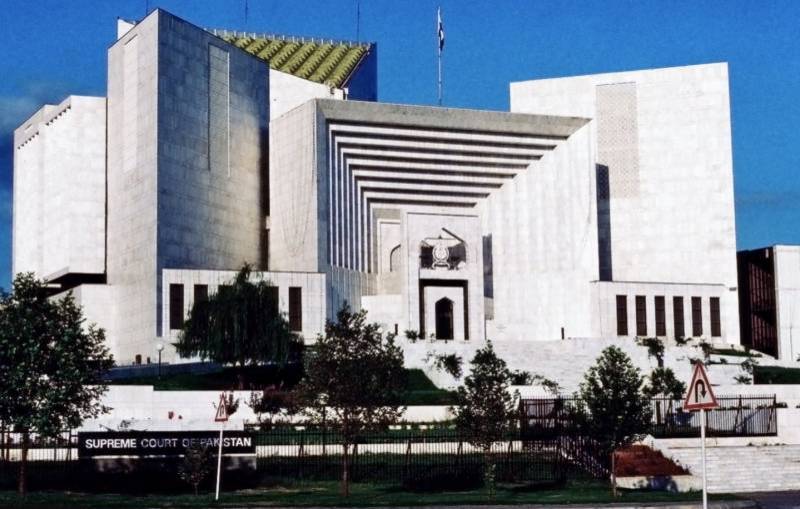Islamabad (Web Desk): The Supreme Court (SC) on Tuesday issued notices to the federal government, National Accountability Bureau (NAB), in connection with Pakistan Tehreek-e-Insaf (PTI) Chairman Imran Khan's petition challenging the amendments to the NAB Ordinance.
According to details a three-member SC bench, comprising Chief Justice of Pakistan (CJP) Umar Ata Bandial, Justice Ijazul Ahsan and Justice Syed Mansoor Ali Shah conducted hearing on the petition.
Advocate Khawaja Haris appeared on behalf of the PTI chairman.
During the hearing, the CJP asked PTI Vice President Shah Mahmood Qureshi why his party did not object to the legislation, related to amendments, in the parliament.
CJP Bandial urged the former ruling party to consider participating in the assembly, “for the sake of people and the country.” He also lamented the current economic situation.
The CJP stated that the functioning of the parliament was necessary for the progress of the country,
“Parliament is the sovereign body; we have always held that parliament should be fully functional,” he added.
The court remarked that several issues brought to judicial bodies were the domain of the parliament. “These issues should be debated in the parliament so that the court may spend time to decide litigant cases.”
Justice Syed Mansoor Ali Shah questioned the PTI counsel on the matter of parliamentary debate, stating that serious questions would arise on the locus standi of the petitioner, as to why they did not participate in the debate.
Justice Ijaz ul Ahsan disapproved of the former ruling party’s “complete walk over to the government” stating that the party could have raised objections on the legislation.
At this, PTI leader Qureshi apprised the court that the NAB amendments had been discussed by the parliamentary committee for several hours.
“Probably, you are talking about the committee’s meeting held ahead of the no-trust motion,” Justice Hassan stated.
Meanwhile, Justice Mansoor asked, “Why did you walk out of the assembly when you were aware of the importance of the NAB amendments?”
Qureshi argued that the treasury benches bulldozed the NAB amendments by a majority.
Earlier, PTI’s lawyer Khawaja Haris said that the parliamentary system and Islamic provisions are features of the constitution and these amendments affected these features.
He also objected to amendments regarding the definition of assets beyond means as well as misuse of authority. Haris further raised questions on the recent amendment which define the offense of Benami.
The PTI's lawyer contended that under the new amendments, material obtained through Mutual Legal Assistance (MLA) could not be placed as evidence before an accountability court.
He said that the amendment was created to benefit those accused involved in fake account cases.
Subsequently, the court sought replies from the federal government and the NAB in this regard and adjourned the hearing until July 29.
The bill was passed by the National Assembly and Senate in May. After its approval from both houses, the president's assent was required for it to become law.
However, President Arif Alvi sent back the bill, following which the government convened a joint sitting of the NA and Senate, which approved it.
The president again refused to sign them, terming them "regressive", and sent them back. But procedurally, 10 days after a joint sitting passes a bill, it is considered law even if the president refuses assent.


